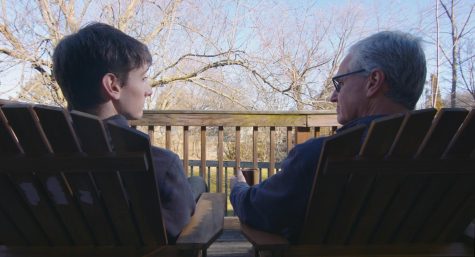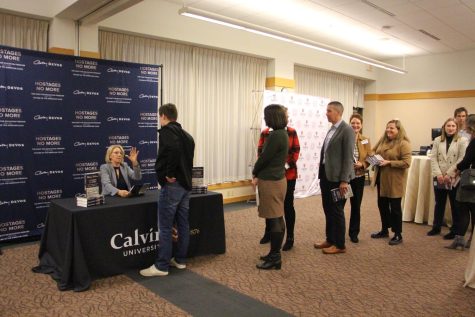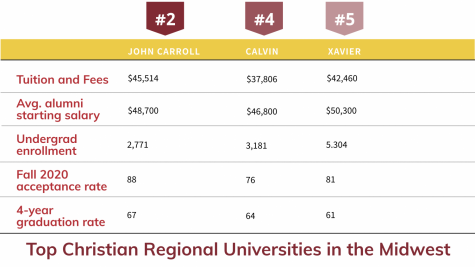Calvin responds to political unrest in Ukraine
With 5,000 miles between the U.S. and Europe, the political situation in Ukraine hits closer to home than many expect, both emotionally and economically.
Last month, 10,000 people crowded the streets of Kiev in a bloody protest against Ukraine’s corrupt government, including several close friends of Olena Shkatulo, Calvin Spanish professor and native Ukrainian.
Born and raised in Ukraine, Shkatulo once lived in the capital, Kiev, and the region of Crimea, both sites of recent riots and oppression.
Today, the home Shkatulo once knew is now politically divided, being pulled between Russia and the West. “Even my family is divided. My aunt is pro-Russian while her son is pro-West.”
The internal unrest within Ukraine’s government, though unfortunate, is also giving many Ukrainians hope, Shkatulo said, as it is a chance to break free from the pervasive corruption. “However, what Russia is doing is an invasion.”
In 1994, the Russian Federation signed the Budapest Memorandum, assuring they would neither threaten nor use forceful power against the independent state of Ukraine.
“Russia is violating international law and international norms,” said Dr. Becca McBride, professor of political science and former U.S. government Russian analyst. “Powerful countries do not go into neighboring countries and take land.”
The military involvement of Russia has caused international involvement. The U.S. and EU allies have issued sanctions against Russia as punishment for their violation of sovereignty.
However, McBride explained the downward spiral that imposing sanctions could have economically as Russia threatens to push back with sanctions against the West.
This backlash could cut the U.S. and Europe off from Russia’s oil and natural gas supply.
“It’s tricky because Russia needs these customers too,” McBride said. “The country is shortsighted economically by supporting itself on oil and natural gas.”
Compared to Europe, the U.S. is not nearly as dependent on Russia for oil and natural gas, but this economic tension could have an effect on future gas prices, according to McBride.
For Calvin students, the political unrest in Ukraine may affect future study abroad traveling, said junior Christian Balcer, who studied in Hungary last fall.
“I have a feeling Calvin will encourage future abroad students not to travel to Ukraine or Russia, at least for awhile,” said Balcer.
Though Balcer did not witness any political unrest during his visit to Kiev five months ago, his pictures of Independence Square in Kiev, compared to the recent war-torn images, are striking.
“It’s a bit surreal,” he said. “You never visit a place expecting it to go haywire after you leave.”
“I can’t say confidently how this situation affects us at Calvin specifically,” said senior Hailey De Jong, who also studied in Hungary and traveled to Kiev, “except that we should absolutely pray for peace and reconciliation.”
Though the situation in Ukraine may affect the U.S., Shkatulo believes the U.S could have more influence on the situation in Ukraine.
“If the West pushes hard enough, Russia will have to cave in; if they don’t push at all, this may encourage Russia to take more territory.”
As this struggle in Ukraine continues to put pressure on economies and emotions, McBride and Shkatulo hope there will be no international armed conflict.
“Fighting would be a tragedy,” said Shkatulo. “My country could not compete against the Russian military alone.”






